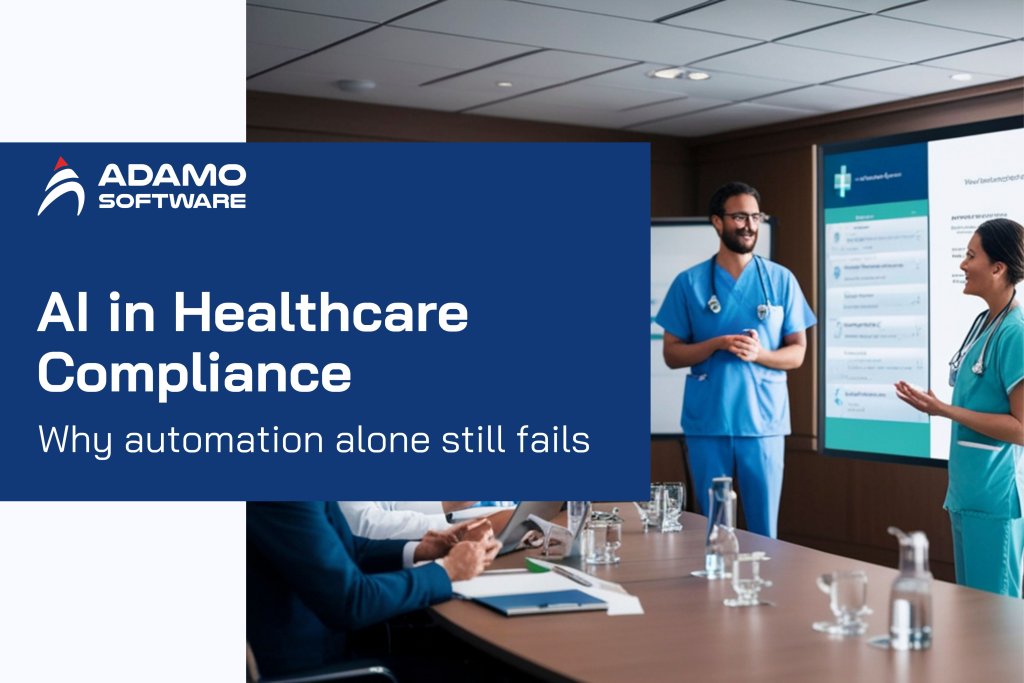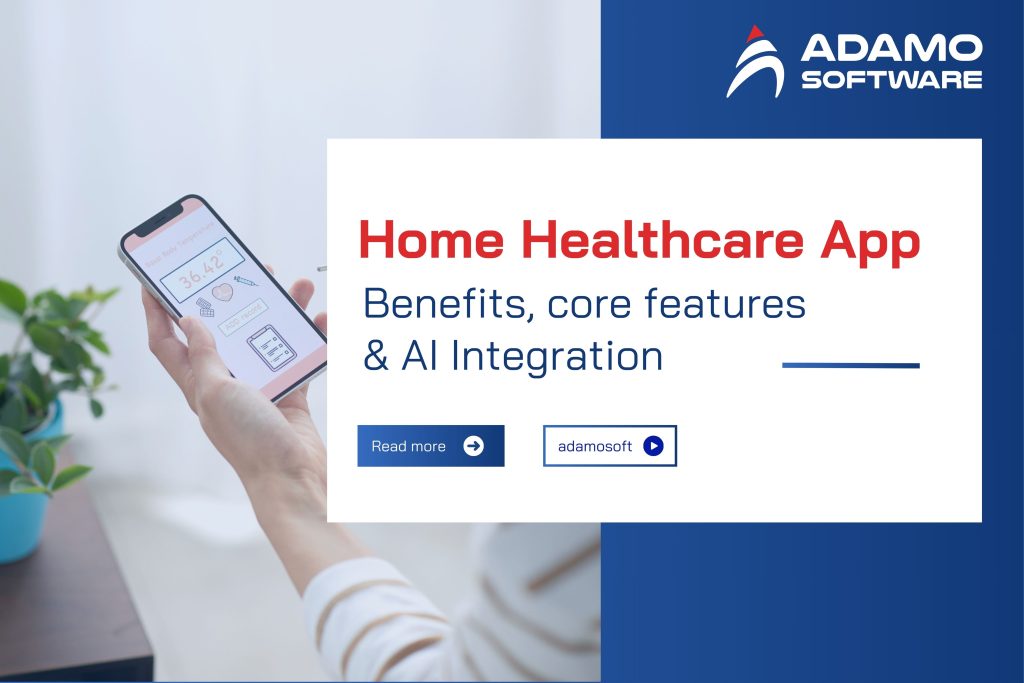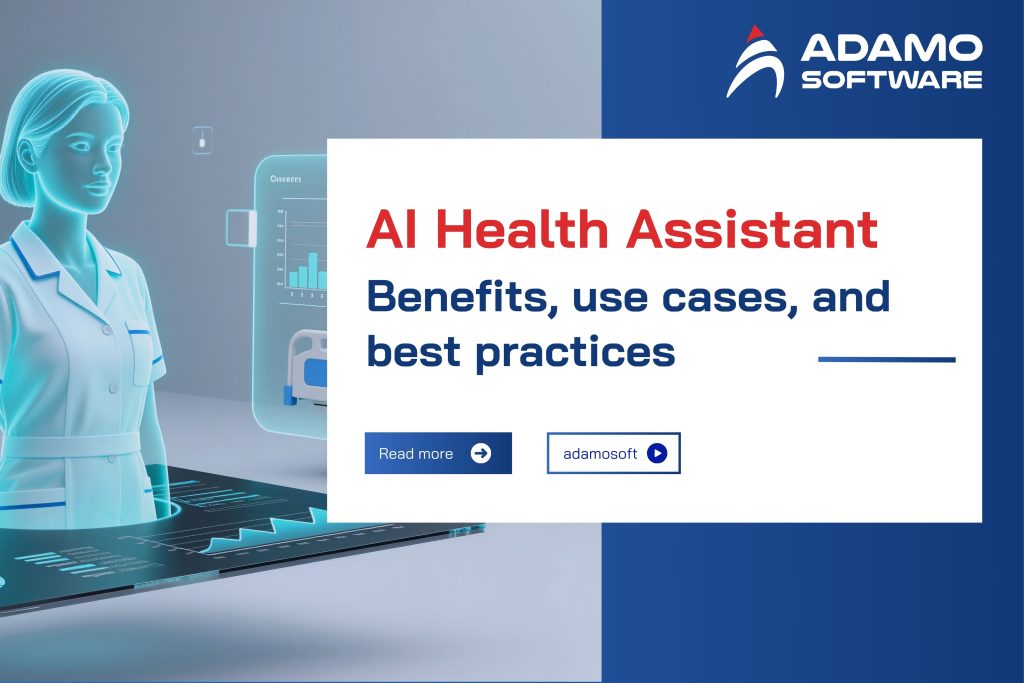Agentic AI in Healthcare: Transforming Patient Care with Smarter Decisions
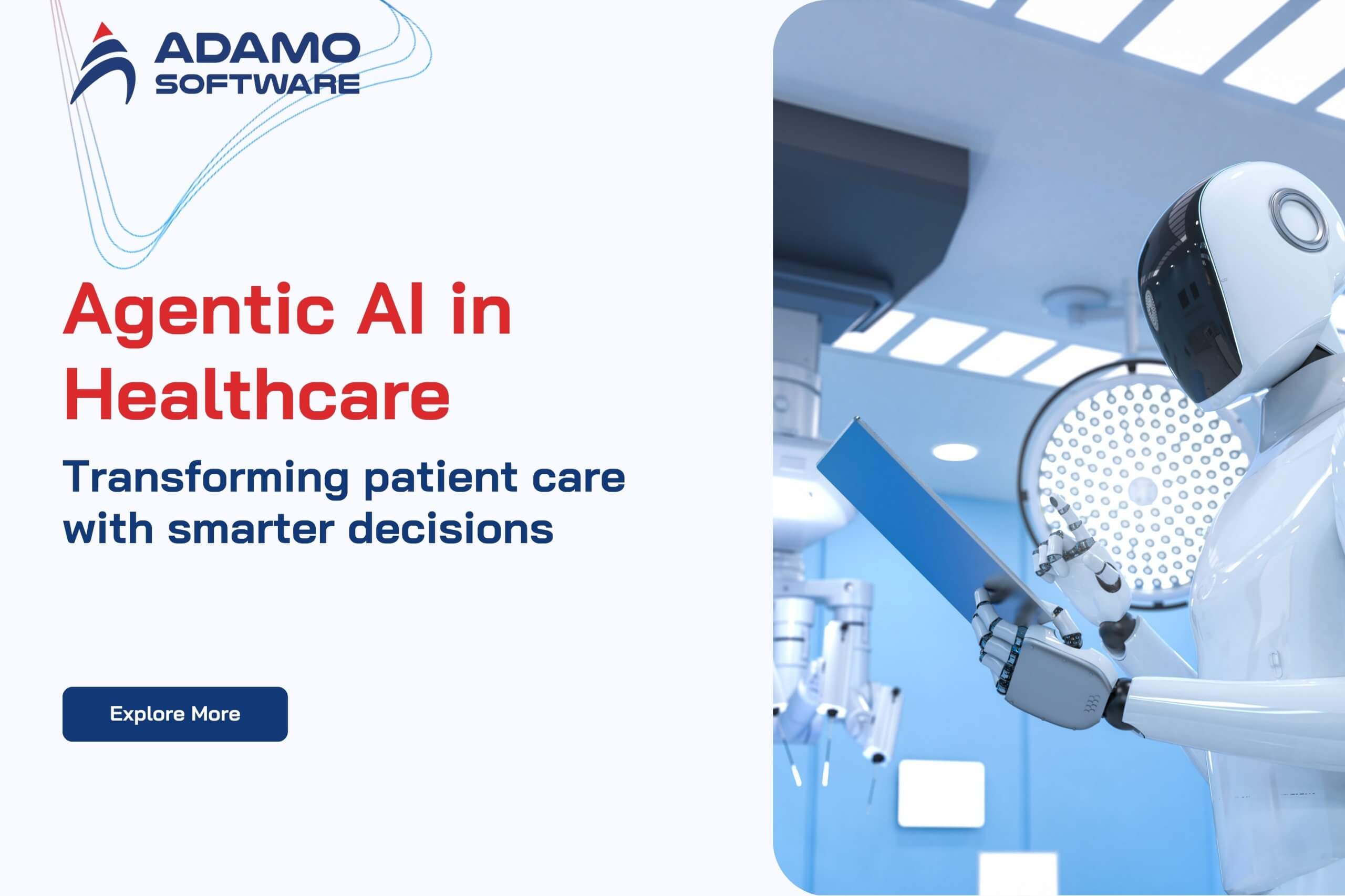
Learn what sets Agentic AI in Healthcare apart, real-world use cases, key benefits, and best practices for adoption.
The emergence of Agentic AI in Healthcare is redefining the way hospitals, clinics, and providers can provide care. In contrast to conventional AI, Agentic AI solutions can make context-specific choices, adjust to real-time conditions, and operate with little human guidance. This new generation of technology enables health care professionals to become more accurate, less burdened, and finally, to provide better patient outcomes.
As the healthcare sector proceeds through its digital revolution, Agentic AI in Healthcare is turning out to be greater than a buzzword. The results of this viable solution can be clearly measured. Personalized treatment recommendations, smooth operations, and long-term value are only some of the advantages of using Agentic AI.
To better understand this new technology, in this article, we will look into:
- What sets agentic AI in healthcare apart
- Real-world use cases of healthcare agentic AI
- The benefits of using Agentic AI in Healthcare
- Best practices for the successful integration of Agentic AI
I. What sets Agentic AI in Healthcare apart?
One of the main characteristics of Agentic AI in Healthcare is that it is not limited to static algorithms. Rather, it learns from real-world interactions and dynamically reacts to both clinical and administrative needs.
Different from traditional AI, which can only do what it is programmed to do, Agentic AI is dynamic. It can adjust to sophisticated and dynamic healthcare settings.
The major healthcare applications of Agentic AI are:
- Automation of workflows: Agentic AI can automate the process of scheduling the staff, accepting patients, and documentation, as well as other routine processes. This helps reduce administrative overheads and frees medical teams to focus on patient care.
- Real-time decision support: Agentic AI can provide clinicians with data-driven decision support and autonomously make decisions when time is of the essence.
- Adaptive learning: With continuous exposure to APIs, digital tools, and dynamic medical datasets, Agentic AI systems will increase in precision and performance over time.
The main difference between Agentic AI in Healthcare and other forms of AI is that it can adapt without the need for continuous human interference. Whereas traditional AI tends to get stuck when being exposed to new information or changing processes, Agentic AI gains efficiency with usage. This is why it is a more effective and stable choice for use in the fast-paced healthcare environment.
II. Real-world use cases of Healthcare Agentic AI
Agentic AI in healthcare is no longer a future. It is already being applied in the healthcare field to change the way care is delivered, research is conducted, and systems are operated. It solves problems that were not previously solvable with adaptive intelligence and real-time decision-making.
The key real-world applications of agentic AI in healthcare that should be mentioned in this part should include:
- Individualized Treatments: AI-guided treatment plans built on individual patients’ data-driven characteristics.
- Early Outbreak Detection: Detecting the health threats earlier than they spread.
- Quicker Drug Development: Developing drugs faster is possible now because of predictive modeling and computer simulations.
- Reduced Paperwork: Minimizing paperwork so the clinicians can concentrate on the patients.
1. Individualized treatment
The application of agentic AI in Healthcare takes precision medicine to another level by integrating genetic data, health records, and real-time health signals. Rather than general strategies, physicians are provided with AI-guided information that personalizes treatment, such as chemotherapy or surgery, to a particular patient.
This strategy has been proven to be effective in oncology with a 20% improvement in survival and a 15% increase in progression-free intervals.
In addition to cancer, Agentic AI could be used to provide personalized insights to support chronic disease management, medication dosing, and lifestyle interventions. This will also lead to better outcomes.
2. Early outbreak detection
New health threats are frequently identified with a delay in public health systems. This is altered with the help of Agentic AI in Healthcare, which analyzes a variety of data in real time. Such data could be ER visits, online symptom queries, or clinical reports. It can provide vital early alerts to health officials by identifying uncharacteristic spikes or trends.
It also helps map disease spread, identify vulnerable areas, and optimize vaccine research using predictive modeling. Such proactive capacity will make responses quicker and more coordinated, which will decrease the magnitude and severity of future pandemics.
3. Quicker drug development
The creation of new drugs has always been a time-consuming process that requires a lot of resources. In healthcare, Agentic AI allows researchers to model the compound behavior of digital patient models and how a drug may respond.
This cuts down on wastage of effort on ineffective compounds and focuses on the most promising candidates. Agentic AI reduces the time required to get treatments to the market by automating the pre-clinical testing process and trial design. Patients also get the advantage of getting access to safe and effective medications earlier, but at reduced costs.
4. Reduced paperwork
Healthcare professionals are often bogged down by administrative workloads that leave them unable to provide care to patients. This is mitigated by the use of Agentic AI in Healthcare. It serves as an intelligent assistant and automatically transcribes consultations, schedules appointments, and retrieves patient data during visits.
It is seamlessly incorporated into electronic health records and eliminates manual data entry and repetitive work. Removing this burden will free clinicians to spend time on meaningful interactions with patients. It will also enhance care quality and work satisfaction in healthcare systems.
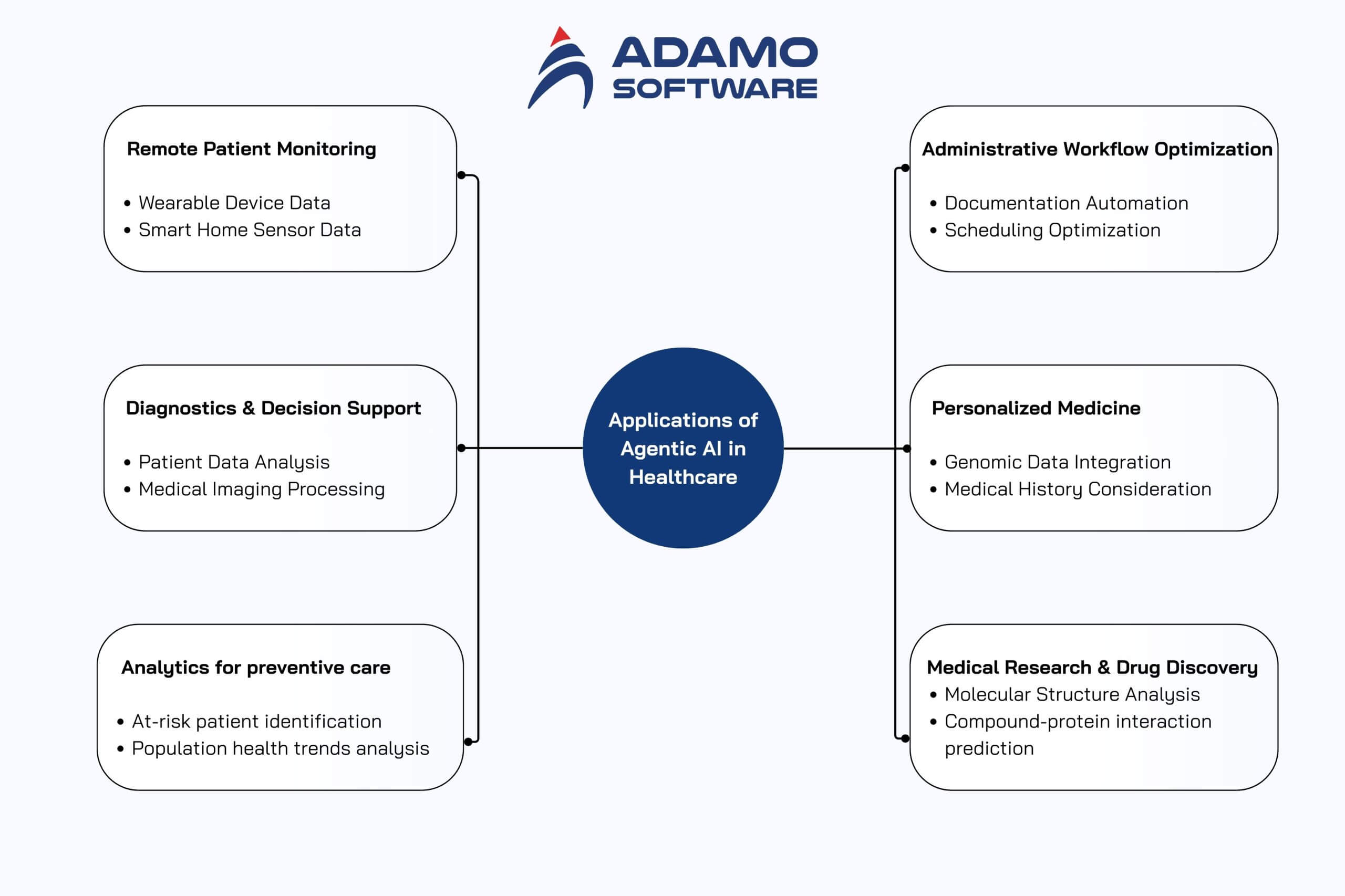
III. What are the benefits of implementing Agentic AI in Healthcare?
The way we care in healthcare is being transformed by agentic AI. This makes it more accurate in terms of diagnostics, more personalized, and more efficient.
Healthcare providers are equipped with tools that are far more than what traditional systems offered. These tools have the capability to analyze huge amounts of data and adapt to changes in real-time.
We are going to concentrate now on two of the most crucial advantages that healthcare organizations can attain through Agentic AI:
- More Intelligent Diagnostics: Early detection of diseases using state-of-the-art pattern recognition.
- Personalized Patient Care: Customizing care with data-driven information.
1. Agentic AI Smarter Diagnostics
Among the greatest advantages of Agentic AI in Healthcare is the fact that it can improve diagnostics. Agentic AI can identify risk factors and patterns of large amounts of patient data that clinicians might otherwise miss. This will enable diseases to be detected earlier, and more proactive and quicker interventions.
These tools have the potential to draw lines through huge data volumes and find some hidden correlations as well as rare conditions. This eventually leads to increased accuracy and even saves lives due to the timely diagnosis.
2. Individualized Care for the Patients
The next important advantage of Agentic AI in Healthcare is that it can drive highly personalized treatment plans. Combining data as small as genetic sequencing to as large as lifestyle, Agentic AI offers insights that allow doctors to personalize treatments.
Integrating these insights into healthcare allows clinicians to personalize care, minimizing trial and error, reducing adverse effects, and enhancing effectiveness. Consequently, the patients get more specific, efficient, and patient-centered care.
You can explore more about How can AI be used in healthcare: From smarter diagnoses to safer treatments here.
Explore Our Tailor-made Software Development Solutions
We are confident in providing end-to-end software development services from fully-functioned prototype to design, MVP development and deployment.
IV. Best practices for successful integration of Agentic AI
To successfully implement Agentic AI in Healthcare, it is important to introduce some new technology. But on the other hand, it is also important to define its goals and have good governance and a culture of trust.
Carefully planned and step-by-step healthcare organizations stand a much better chance of achieving long-term impact and value.
Healthcare leaders can follow the best practices below to make sure that Agentic AI is implemented smoothly and utilized effectively:
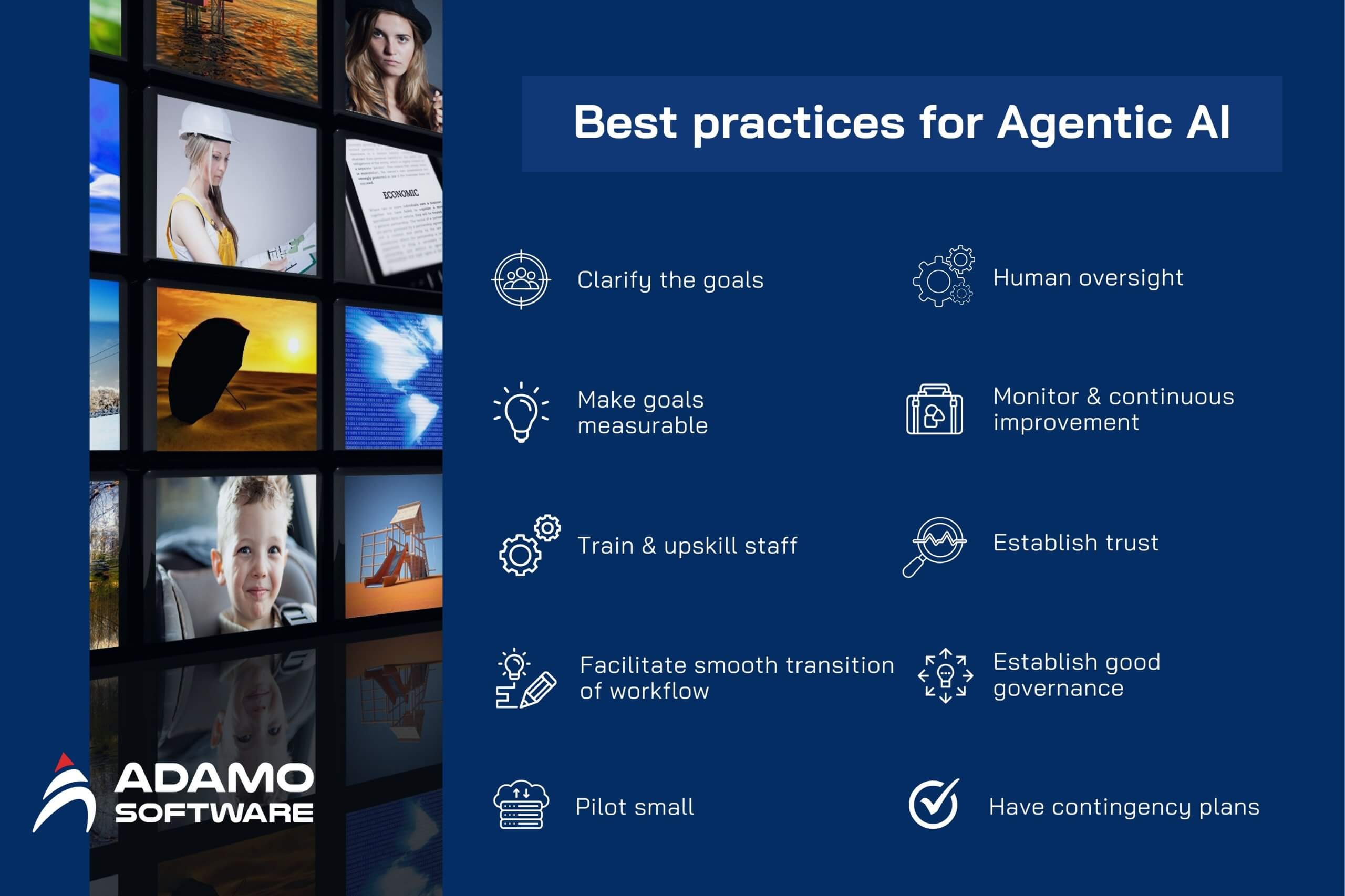
- Clarify the goals: Before you adopt AI, you need to define its purpose and what it will be used for
- Make goals measurable: Set goals in line with patient care and organizational priorities.
- Train and upskill staff: Provide employees with the knowledge to use and handle AI in an efficient way.
- Facilitate Smooth Transition of Workflow: Make the AI systems integrate with the workflows in a seamless way.
- Pilot small: Do pilots to test effectiveness and then scale to an organization-wide change.
- Human oversight: To find the right mix, you need to balance AI automation with human oversight.
- Monitor and continuous improvements: Measure KPIs and streamline systems.
- Establish trust: Talk about the use of AI and be open to feedback.
- Establish good governance: Create multidisciplinary teams to monitor.
- Have contingency plans: Plan contingencies in detail.
1. Clarify the goals
All the Agentic AI in Healthcare projects must start with a vision. Writing down the goals and scope will help the stakeholders know how they will be using AI. This could be to increase diagnostics, automate administrative work, or even improve patient satisfaction. Clearly established basis averts cross-purposed anticipation and assists in determining the use of resources.
2. Make goals measurable
Organizations must have specific goals to measure success, such to increase diagnosis accuracy rates, decrease wait times, or increase patient satisfaction scores. Quantifiable objectives will give a set of benchmarks against which healthcare teams can assess the practical effects of Agentic AI in Healthcare over a period.
3. Train and Upskill Staff
Technology can do nothing without human beings. Training AI champions and offering continuous education to staff ensures smooth and sustainable adoption within the organization. Through demystifying Agentic AI in Healthcare, teams will feel confident in utilizing it in their everyday practice.
4. Facilitate Smooth Transition of Workflow
AI tools should be able to integrate well with systems. By taking advantage of interoperability standards such as FHIR, Agentic AI in Healthcare can be used to integrate with EHRs and other systems. Smooth flow eliminates interference and maximises smooth integration.
5. Pilot small
Pilot projects are used to find out gaps, risks, and opportunities before rolling out to the whole organization. Small-scale testing of Agentic AI in Healthcare can help to learn lessons and make improvements prior to broader rollout.
6. Keep Human Control
Clinical judgment should not be substituted for AI. The integration of feedback loops and the retention of human decision-making capabilities hold humans accountable and ensure safety. This approach is trusted in the context of Agentic AI in healthcare workflows.
7. Monitor and Continuous Improvement
The effectiveness of AI programs can be measured with the help of regular assessments against the KPIs. Regular performance assessments assist in keeping Agentic AI in Healthcare aligned with the changing needs of patients and organizations.
8. Establish Patient Trust and Openness
It is critical to patient confidence. Explaining Agentic AI in healthcare and gathering feedback fosters trust and enhances patient engagement. Transparency brings about acceptance and less worry about technology taking the place of human care.
9. Institute Sustainable Governance
When you have strong rules in place, AI will be used ethically, safely, and legally. The establishment of multidisciplinary teams to govern will enable organizations to manage risks, streamline processes, and ensure accountability.
10. Write Risk Management Plans
Even the most developed systems may have problems. When implementing the Agentic AI in Healthcare, clear contingency plans for technical failures, data errors, or other unforeseen results are necessary. This approach is essential to reduce risks and protect both patients and staff.
V. Final thoughts

The possibilities of Agentic AI in Healthcare are redefining modern care, allowing earlier diagnosis, individualized treatment, simplified workflows, and smarter decisions. From both real-world applications and best practices, it is evident that this kind of technology is going to change healthcare at all levels.
At Adamo Software, we enable healthcare organizations to make Agentic AI a reality. Having experience in AI-based platforms, EHR integration, telehealth, and remote monitoring, we create digital health solutions that are secure, compliant, and intuitive. We do not simply sell software; we establish long-term relationships with training and support, and ongoing improvement.
Are you prepared to use Agentic AI in Healthcare? Contact us today!



